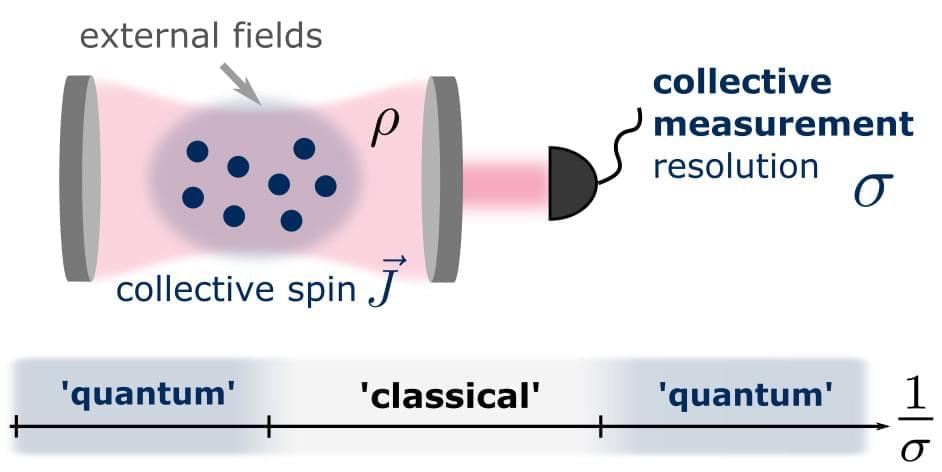We study the competing effects of collective generalized measurements and interaction-induced scrambling in the dynamics of an ensemble of spin-1/2 particles at the level of quantum trajectories. This setup can be considered as analogous to the one leading to measurement-induced transitions in quantum circuits. We show that the interplay between collective unitary dynamics and measurements leads to three regimes of the average Quantum Fisher Information (QFI), which is a witness of multipartite entanglement, as a function of the monitoring strength. While both weak and strong measurements lead to extensive QFI density (i.e., individual quantum trajectories yield states displaying Heisenberg scaling), an intermediate regime of classical-like states emerges for all system sizes where the measurement effectively competes with the scrambling dynamics and precludes the development of quantum correlations, leading to sub-Heisenberg-limited states. We characterize these regimes and the crossovers between them using numerical and analytical tools, and discuss the connections between our findings, entanglement phases in monitored many-body systems, and the quantum-to-classical transition.
While interactions within a many-body quantum system tend to generate highly correlated states, performing local measurements will typically tend to disentangle the different subsystems. When combined, the interplay between these two effects often lead to measurement-induced transitions, which separate two distinct stable phases: one interaction-driven, where entanglement is high, and another measurement-driven, where entanglement is low. However, different types of measurements can lead to other scenarios, and often also generate entanglement themselves. In this work we study quantum many-body systems where both interactions and measurements take place collectively and thus generate a high degree of entanglement if acting separately. We show that nontrivial competition between these two actors emerges, leading to configurations with very low entanglement.
